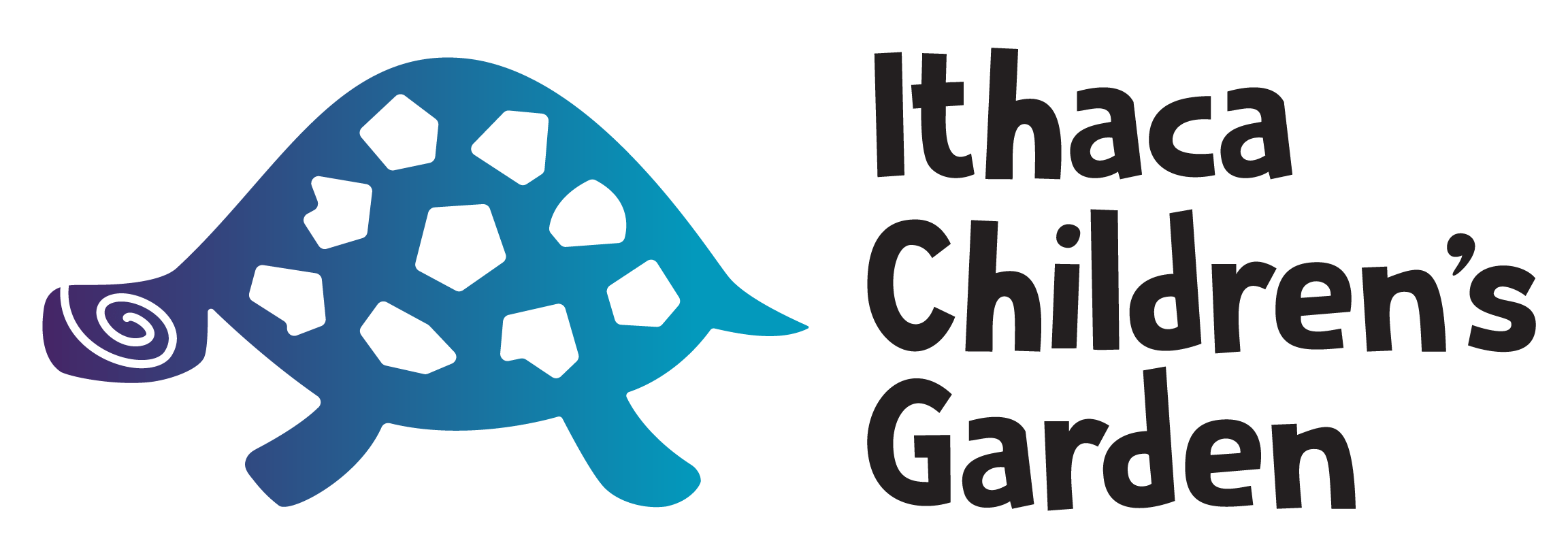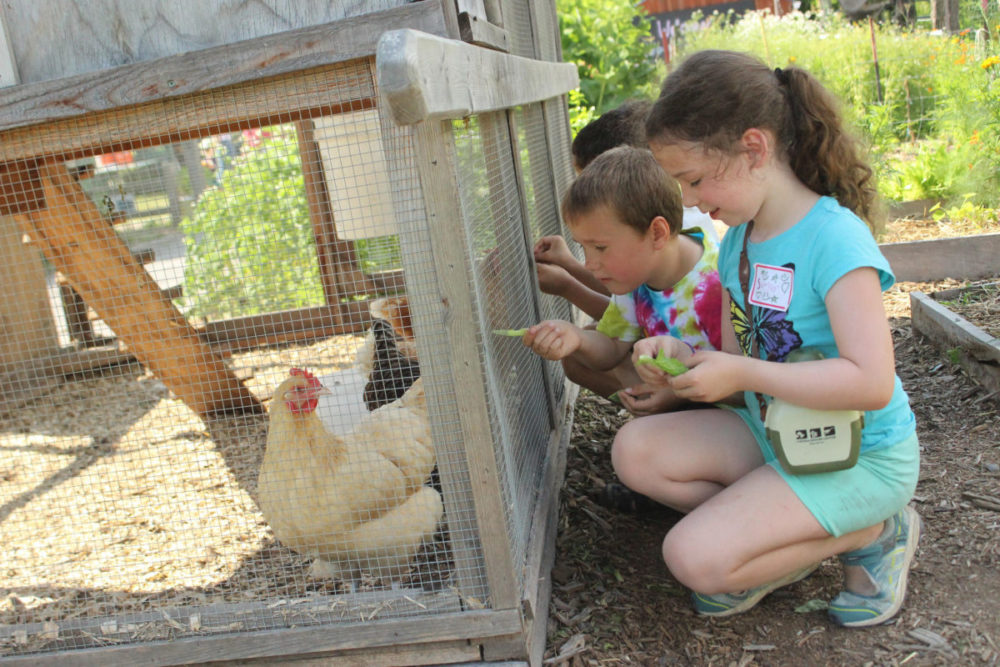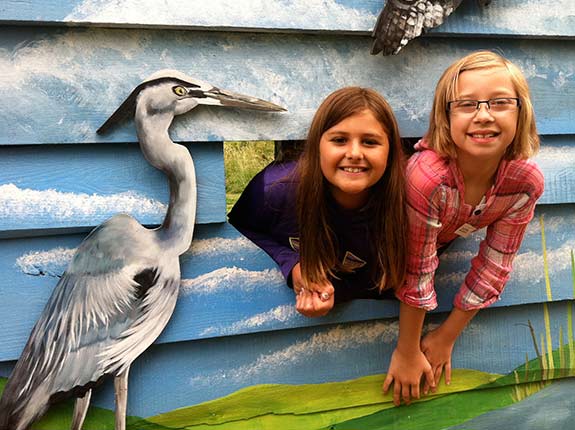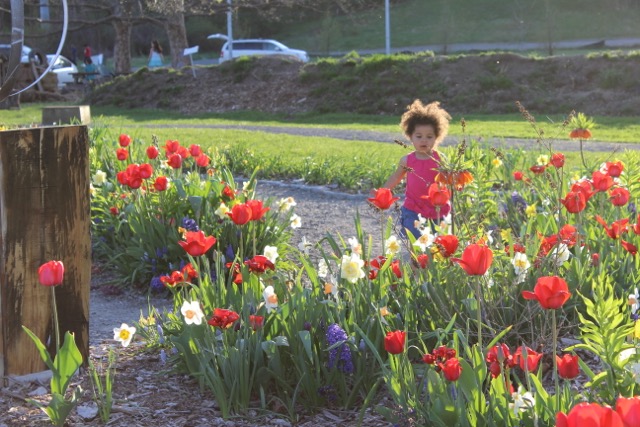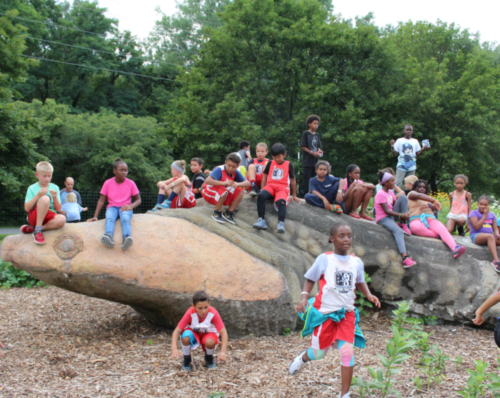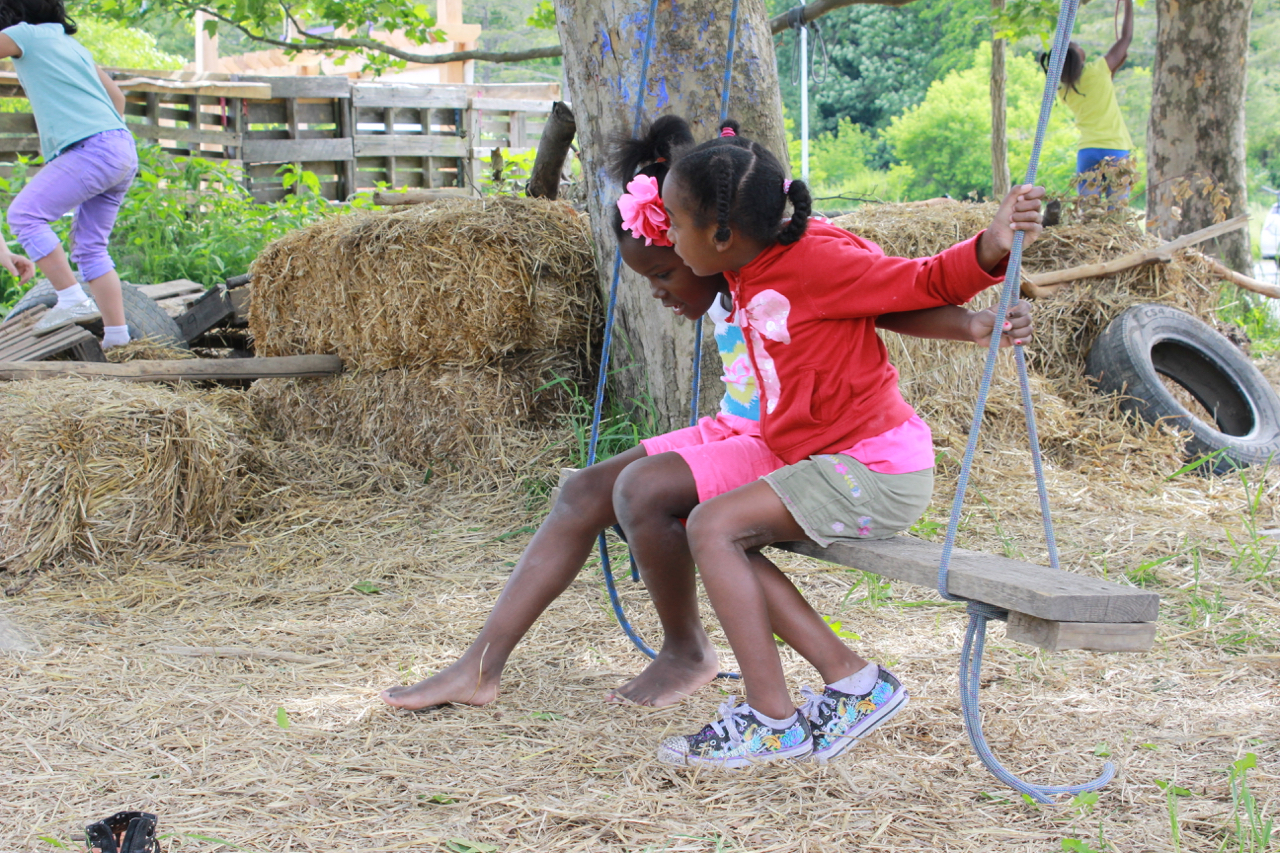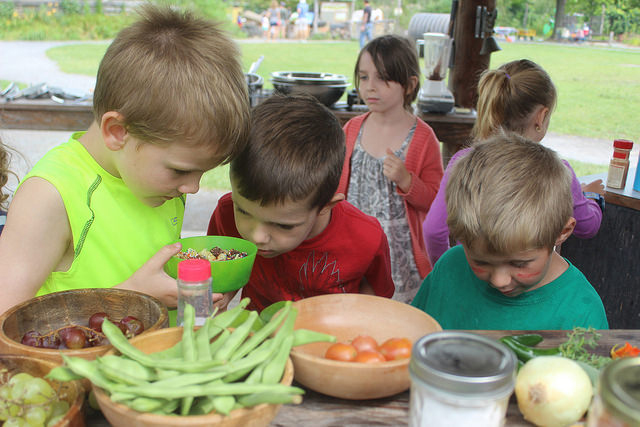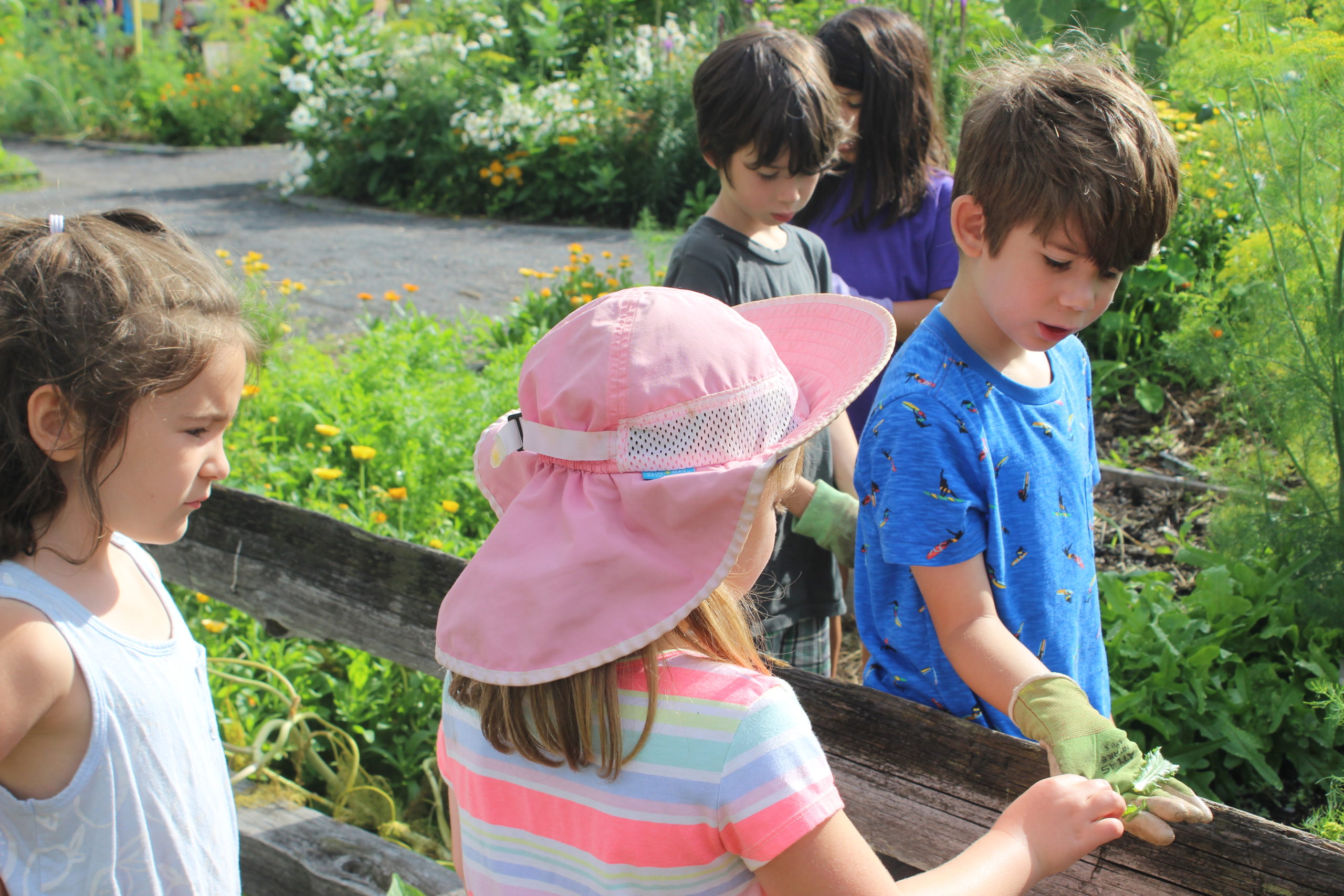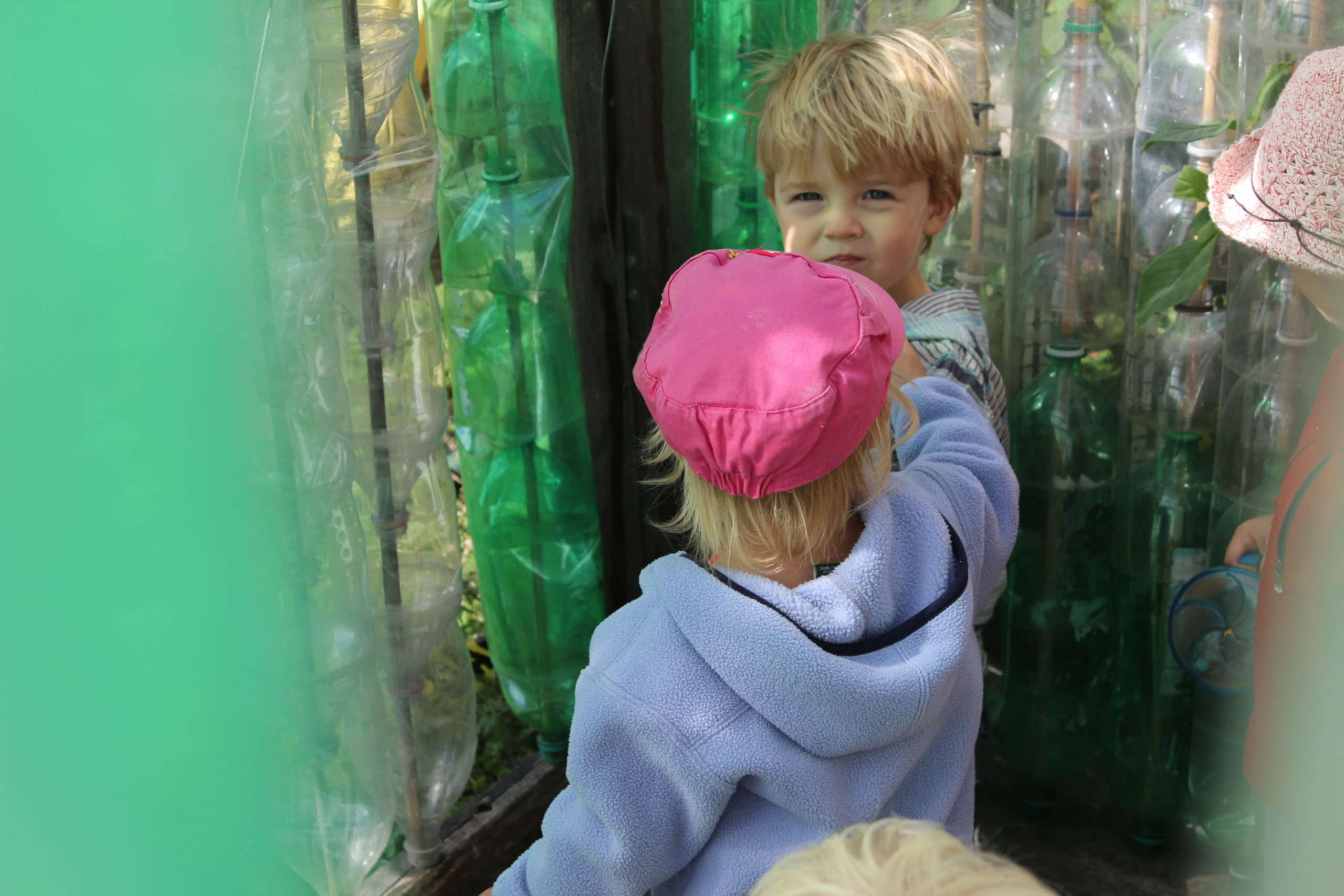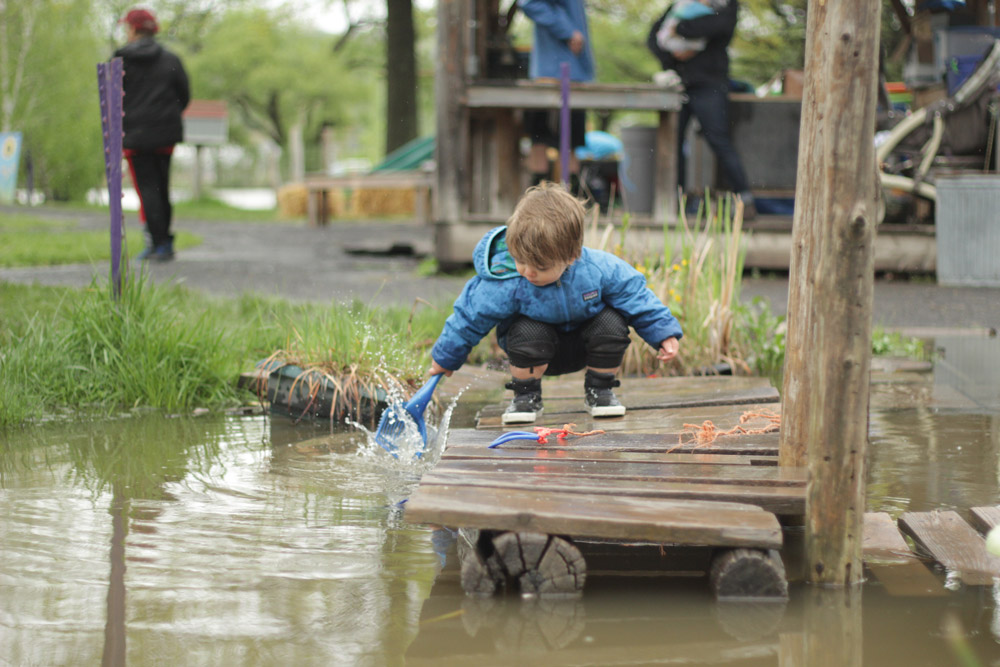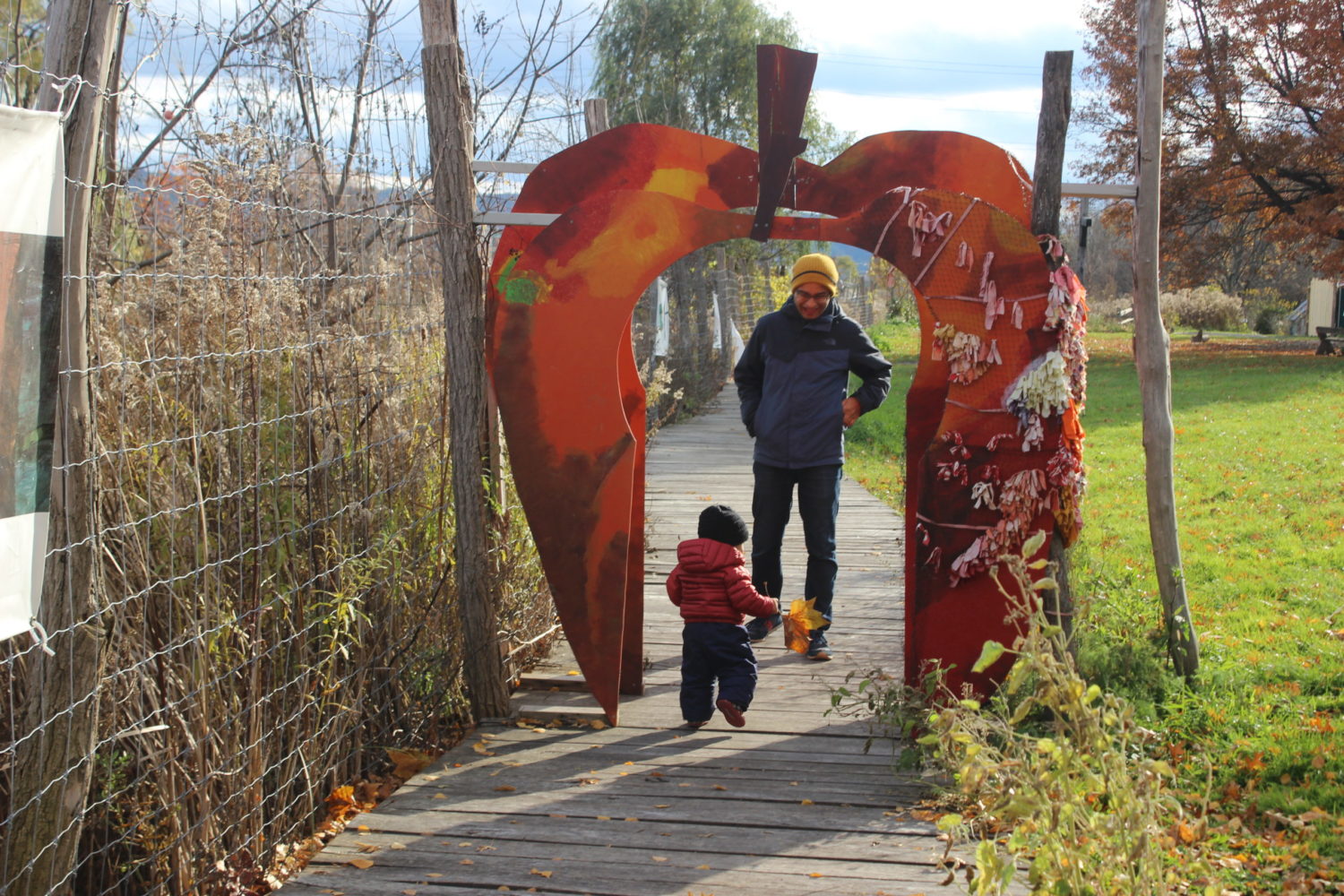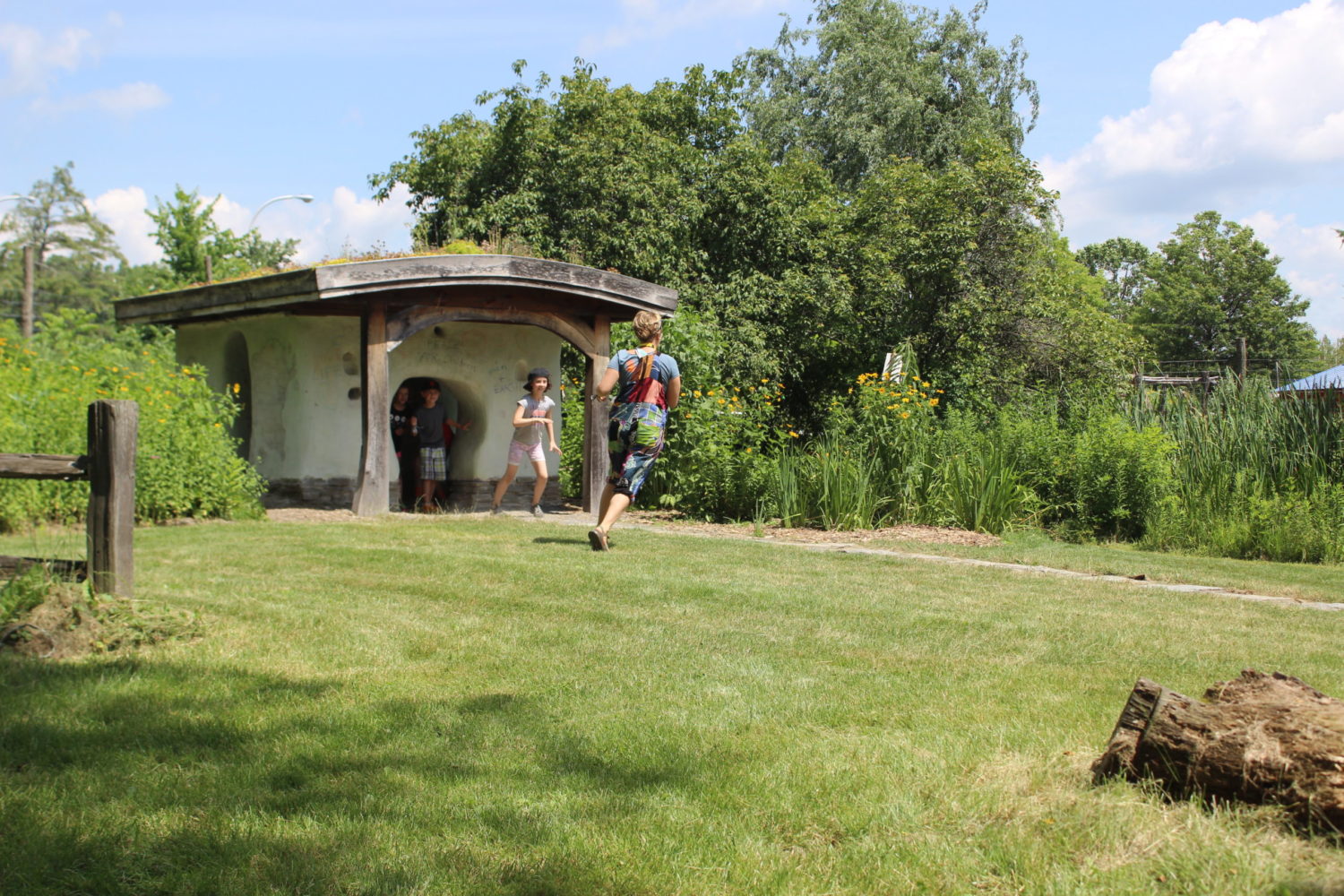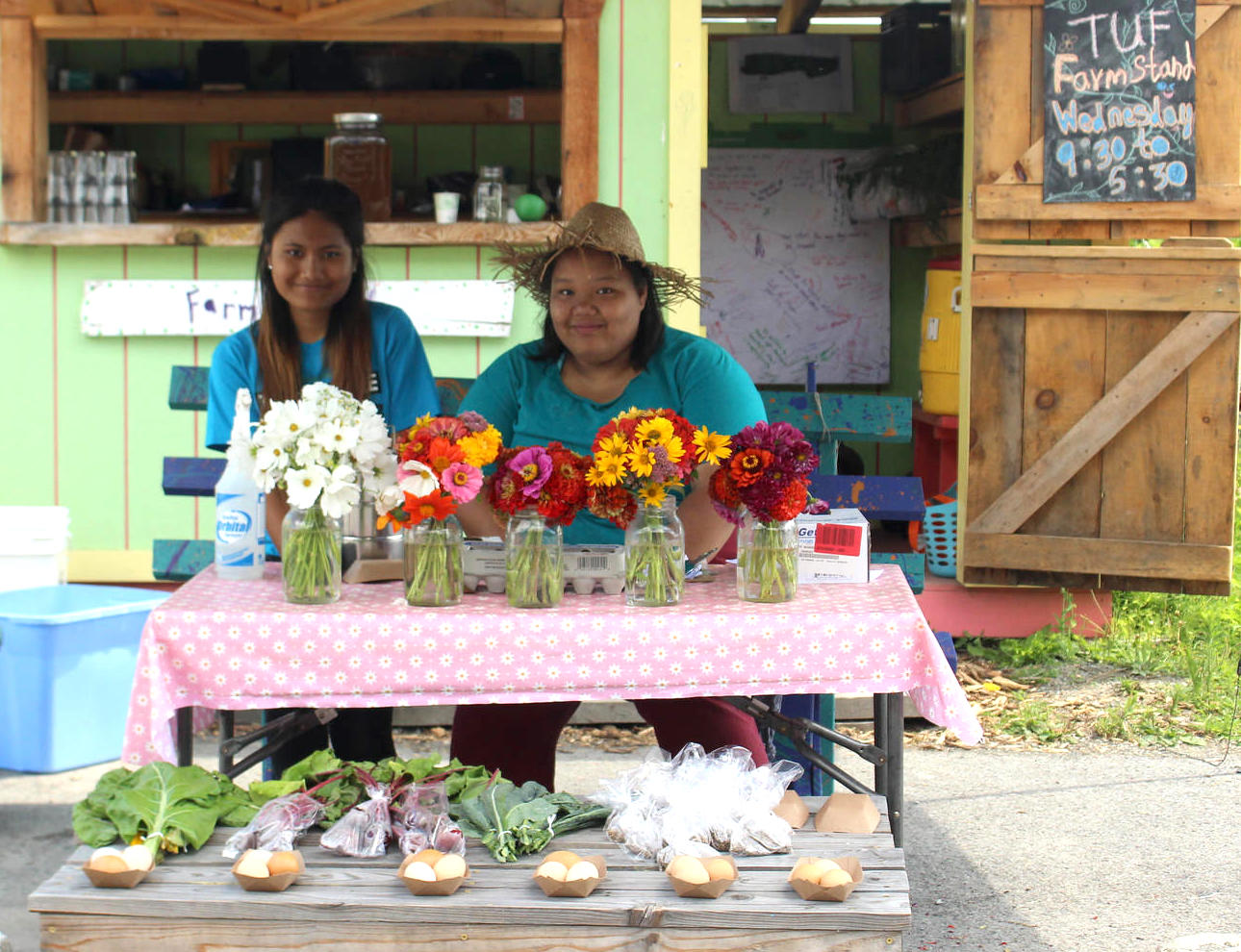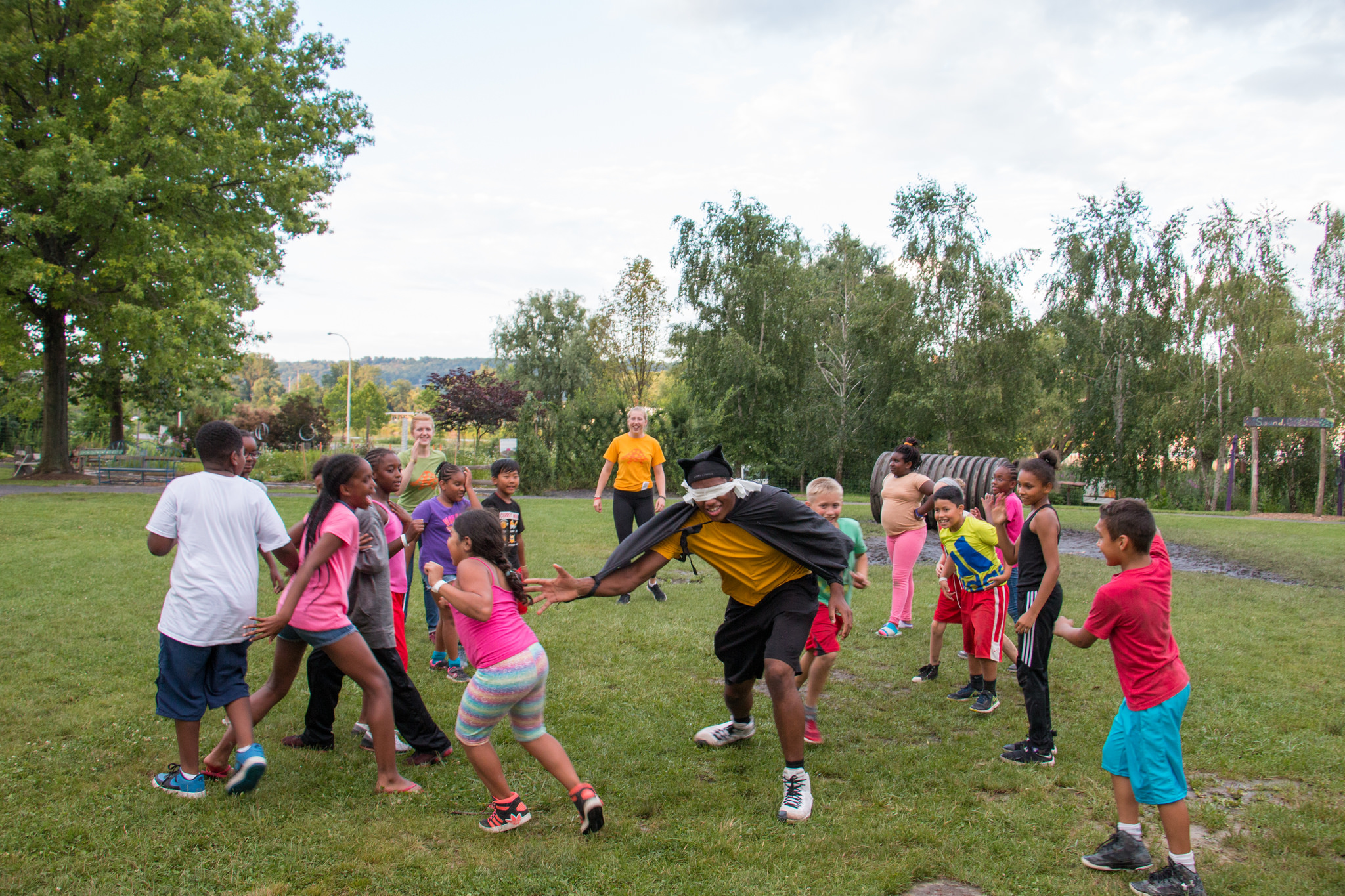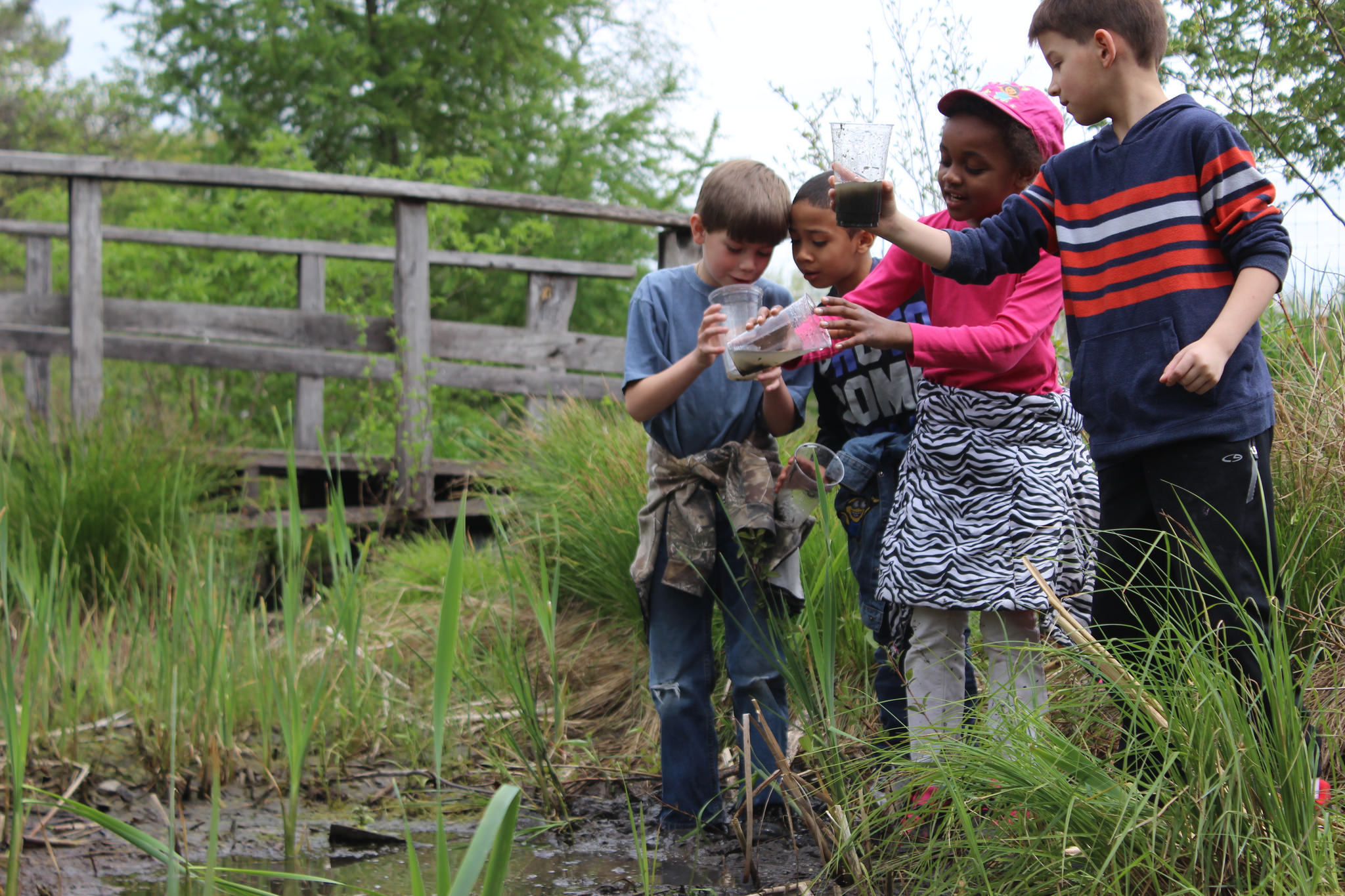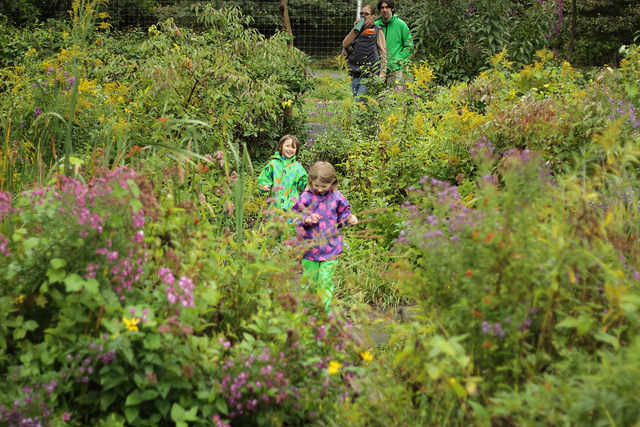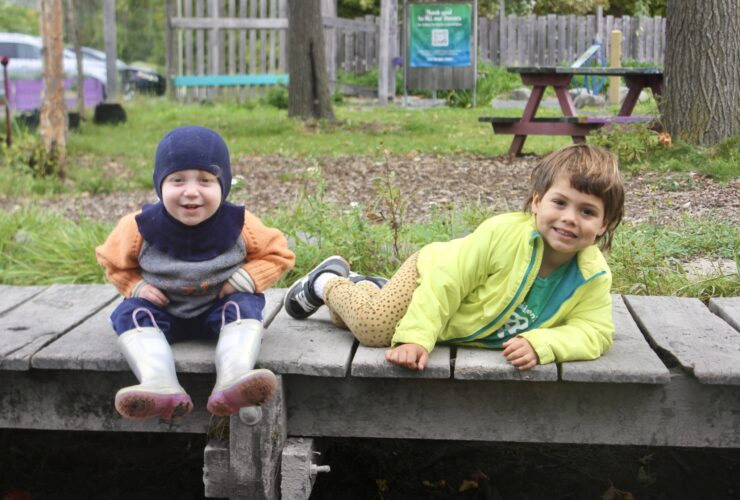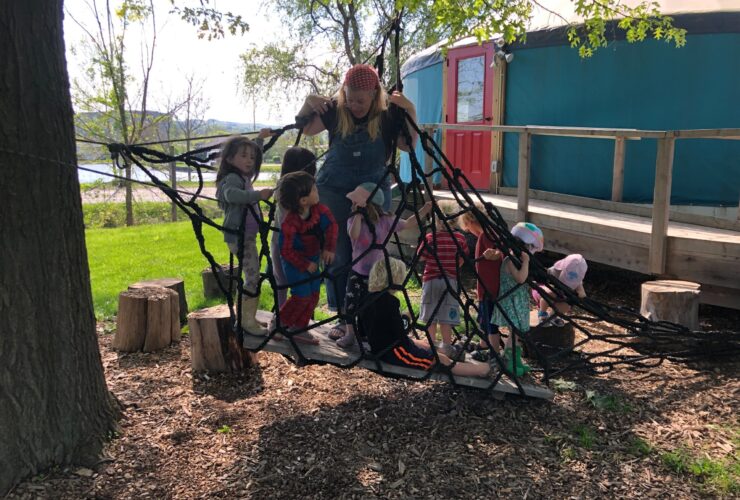Ithaca Children’s Garden and Cornell Masters of Public Health Program Support Outdoor Learning at 8 ICSD Elementary Schools
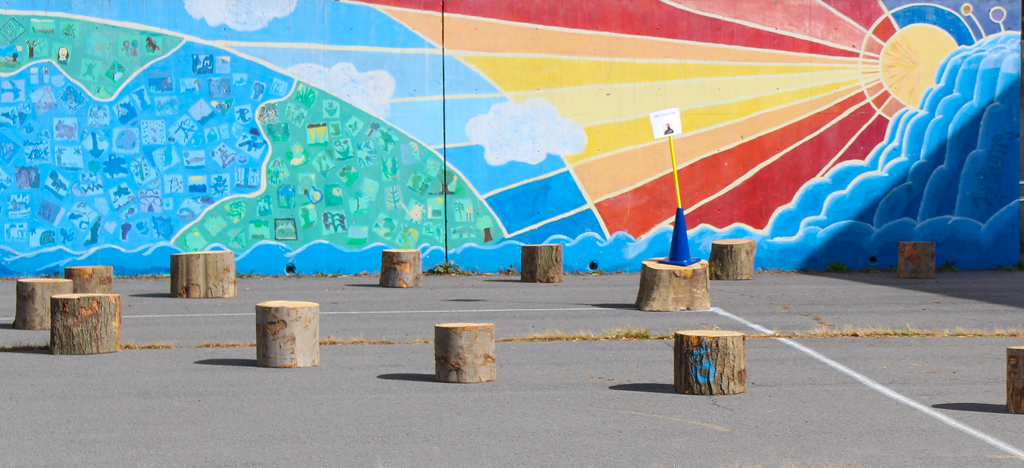
(Links open in new tab.)
Ithaca Children’s Garden and Cornell Masters of Public Health program are partnering to support outdoor learning at all 8 Ithaca City School District elementary schools thanks to a multi year Farm to Table grant, with support from the Cornell Atkinson Center for Sustainability and Engaged Cornell.
Evidence shows learning outdoors and spending time in nature provides many benefits. “Spending time in nature is well-documented to support academic success, foster social development, improve learning, and decrease stress,” Marteal explains, “and when a student engages with nature, that child can find a sense of place, belonging, and a connection to the environment.”
That might be especially important now, when many are feeling quite isolated and disconnected from one another.
“By moving instruction outdoors, whether all day every day, half the day, or even an additional hour or two each day, learners and teachers can realize a number of well-documented benefits while reducing risk of covid infection,” Marteal adds. “With appropriate planning and community engagement, the benefits of implementing a plan to integrate more outdoor learning will long outlast the pandemic.”
Site-specific models for outdoor learning for the eight Ithaca elementary schools were informed by Green Schoolyards America recommendations for using schoolyards as Covid mitigation, Learning through Landscapes (a UK-based non-profit agency), Cornell Garden-Based Learning, and Cornell’s Healthy Kids Healthy Planet project, that has documented barriers to outdoor learning and defined and shared strategies to support outdoor learning, play, and engagement. In addition, ICG staff learned about opportunities and challenges specific to each school, identified through site visits and conversations with each principal over the summer.
Ithaca Children’s Garden Director Erin Marteal and Landscape Designer Liz Fabis, MLA surveyed all eight elementary campuses for outdoor learning space possibilities and barriers through site visits and walkabouts with principals and teachers. They then produced renderings and recommendations, specific to each school’s unique outdoor assets.
According to Green Schoolyards America, “Outdoor learning during the pandemic should be Plan A. Remote learning and indoor learning should be Plan B.” With extensive acreage across the Ithaca City School District, there are plenty of opportunities to make outdoor learning “Plan A,” or at least provide opportunities and support for teachers to take their classes outdoors more often than they might in a non-pandemic year.
Key design principles include:
- Consider children’s happiness and joy in the design, especially important in a pandemic
- Be cost-conscious
- Develop with equity in mind
- Highlight overlapping uses
- Favor temporary interventions over permanent construction to allow for maximum flexibility as outdoor learning needs evolve
- Avoid metal, plastic (which are more hospitable surfaces for the virus) and toxic materials (pressure-treated lumber, e.g.)
“We are not trying to recreate indoor classrooms outside,” Marteal continued, “however it is important for teachers to have what they need in place to start the day outside, or easily transition to outdoor spaces for instruction. Outdoor learning spaces recommended include two types of “bases,” Home Base and Lab Space. A Home Base includes a dedicated learning space that teachers and students can count on arriving to and leaving from every day and that can accommodate a cohort of up to 15 learners. One key outcome of the research the recommendations support and school visits was a need for each class to have a dedicated space that did not require the additional burden of scheduling or negotiating shared use with other classes. Lab Spaces highlight unique opportunities for curricular connections.
Outdoor learning is already practiced in other parts of the world, however in the US, examples of outdoor learning tend to be more common in preschool and private school settings, and in more fair-weather regions than Ithaca.
The set of recommendations developed provides guidelines for supplies and materials, as well as appropriate clothing and gear necessary for successful outdoor learning.
Now that the assessment and recommendations phases are complete, Ithaca Children’s Garden is helping support schools implement their plan, which may occur in phases and will likely include a great deal of community engagement over time. ICSD’s interest in utilizing the district’s abundant outdoor assets more effectively for instruction is simultaneously innovative, and also a logical extension of ICSD’s existing strengths.
Mary Grover, ICSD Inclusion Officer and project liaison says, “This is a natural progression of the place-based and project-based learning that ICSD has been excelling in over the last decade. It builds on our case study curriculum culture and our district’s commitment to supporting all learners. Many of our schools already have unique outdoor learning facilities. This project engages our educators in identifying barriers and solutions while naming the existing assets unique to each school community and using them more intentionally for instruction.”

